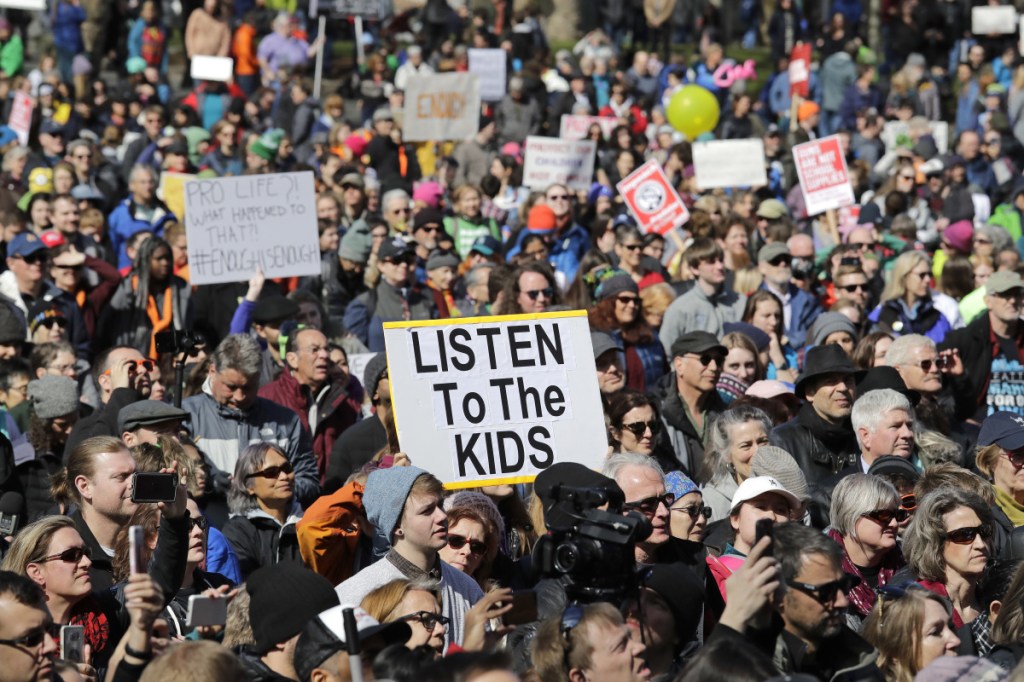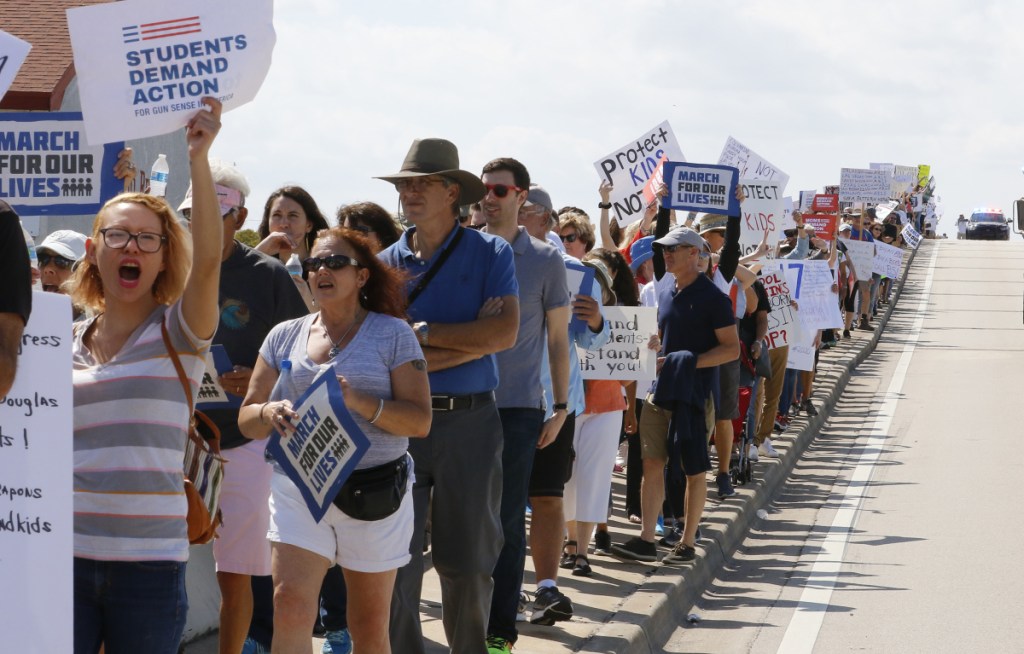WASHINGTON — Jason Muhammad has buried 13 students in seven years.
He remembers them all. The special-education teacher even chipped in for two of his students’ funerals because, he said, parents never think to save money to bury their children.
And on Saturday, Muhammad joined six of his students from National Collegiate Preparatory Public Charter High School in the District of Columbia to rally for stricter gun laws, hoping to prevent another student from being killed.
“It’s the worst thing in the world,” said Muhammad, who taught in Virginia’s Hampton Roads area before moving to D.C. two years ago. “These kids spend the majority of their time with you.”
The focus of Saturday’s March for Our Lives was the thousands of students who streamed in to the nation’s capital to protest gun violence. The youths led the rally, but alongside them were teachers who said they witness each day how fear and violence puncture their students’ lives.
After the rampage at Florida’s Marjory Stoneman Douglas High, President Trump and other officials explored the possibility of arming teachers. But teachers said the conversation needs to go beyond mass shootings and include the violence that the nation’s most vulnerable children face daily in their communities.
“Our students leave school and are forced to consider how they are going to survive the walk home,” said Nigel Jackson, a social worker at National Collegiate Preparatory, which is in a high-crime and low-income neighborhood in Washington.
Teachers traveled from across the country for the sprawling protest. Hundreds of teachers from Florida’s Broward County, where Stoneman Douglas is located, attended the rally to call for change and to honor the students and co-workers slain on campus last month, said Anna Fusco, president of the Broward Teachers Union.
Fusco said teachers at the school have summoned their strength to comfort students, but once the final school bell rings, they confront their own grief and fears stemming from the shooting.
“It’s more personal because our own children, our own educators, our own colleagues were killed,” Fusco said.
Inside the American Federation of Teachers headquarters near the U.S. Capitol, Christa Quint, a 37-year-old teacher in New York, reflected with two students on how school shootings affect people across generations. Quint and her students from Urban Assembly Gateway School for Technology traveled overnight by bus to attend the March for Our Lives.
Quint was a high school senior in 1999 when the Columbine High shooting happened in Colorado, and has watched school shooting after school shooting happen with scant response from lawmakers. After 26 people were killed at Sandy Hook Elementary in Connecticut in 2012, she began to doubt anything would change. But the powerful young voices that emerged after the Stoneman Douglas shooting give her hope.
“Politicians should not be surprised that these young people are standing up and asserting their rights,” she said. “As a teacher who works with young people, I will tell you they are very well-versed to get what they need and how to make sure they’re heard.”
Kyla Waite, a special-education teacher in Chicago, said she was thinking of her students as she marched in the District, including those who lost their lives to gun violence. And the students who are so numb to tragedy that they talk about their brother in the hospital suffering from a gunshot wound in the same mundane tone they invoke talking about what they ate for breakfast.
“They are living in a war zone every single day,” Waite said. “Individual gun violence is also tearing families apart on a daily basis.”
And for Lily Tittle, an English teacher at Baltimore Polytechnic Institute, the reality is that teachers are in danger, too. Her students have considered where they should hide during a school shooting, and asked Tittle if she would protect them from a shooter.
“I would do the best I could,” Tittle said. “But I have no idea because who knows how to respond and handle a situation like that? Why should you have to think about that?”
For the teachers at the District’s National Collegiate Prep, it was empowering and unsettling that people from across the country gathered in Washington, the same city where the killing of a teen has become a common crime scene.
Copy the Story LinkSend questions/comments to the editors.




Success. Please wait for the page to reload. If the page does not reload within 5 seconds, please refresh the page.
Enter your email and password to access comments.
Hi, to comment on stories you must . This profile is in addition to your subscription and website login.
Already have a commenting profile? .
Invalid username/password.
Please check your email to confirm and complete your registration.
Only subscribers are eligible to post comments. Please subscribe or login first for digital access. Here’s why.
Use the form below to reset your password. When you've submitted your account email, we will send an email with a reset code.